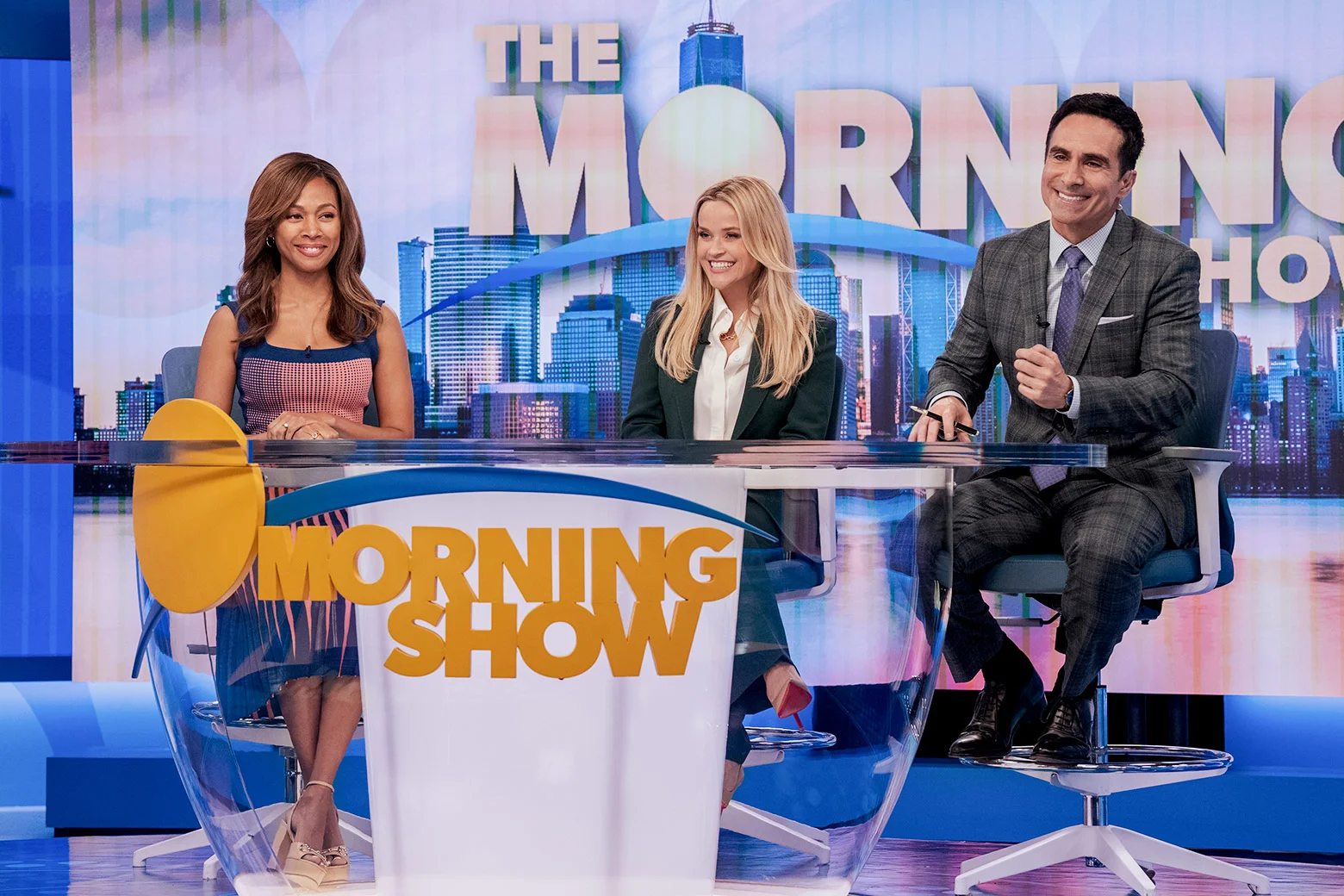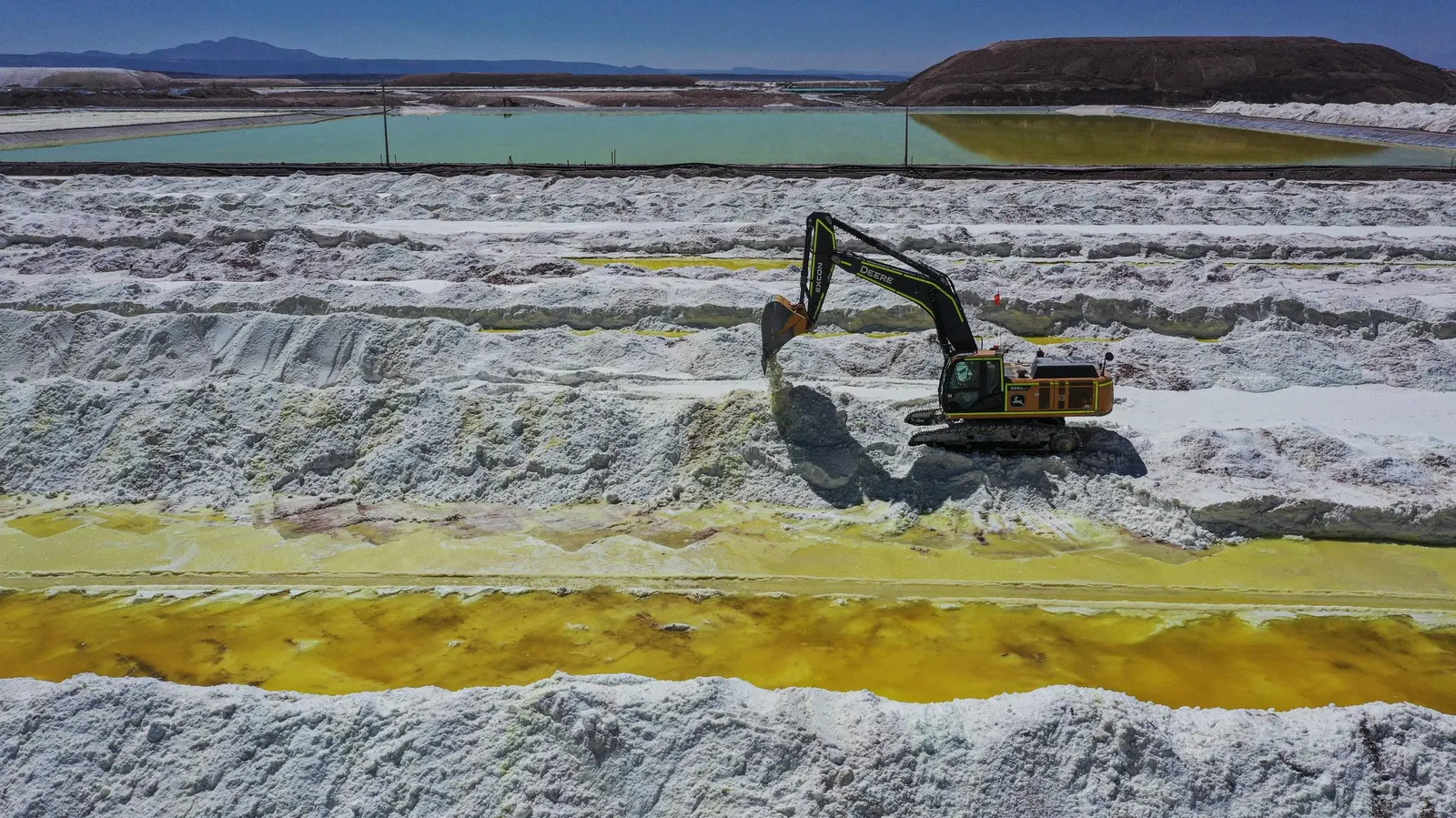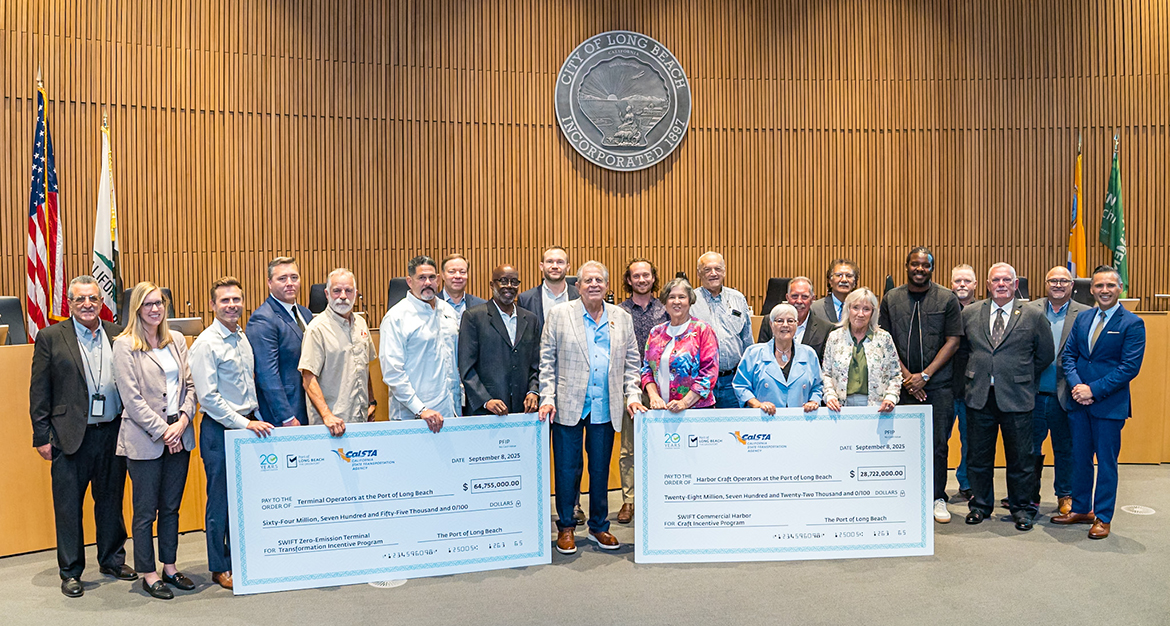
As the new season of The Morning Show progresses, something becomes very clear: Few of the episodes—at least, of the eight that critics received in advance—are actually concerned with, or even set in, the eponymous breakfast news program. There are still a few big on-air moments, like the show’s breaking news coverage of a potential plane crash, but for the most part The Morning Show has moved on from the behind-the-scenes politics of morning TV and the drama between its artificially sunny personalities. As the series has unfolded, its ambitions and scope have widened, and, now in its fourth season, it’s firmly aiming its sights at the media industry and corporate world more broadly. It wants to explore big, important questions, such as what new technologies like A.I. mean for information and disinformation, and whether having women in leadership is enough to reform a deeply rooted white-collar patriarchy. (Spoiler alert: No.) But, much like the once auburn-haired red-state character of Bradley Jackson (Reese Witherspoon)—who is now blond, bisexual, and speaks with zero hint of drawl—the show’s evolution has been somewhat confounding.
The Morning Show has always had the air of a plane that’s being built mid-flight—a series trying to work out what it is and what it isn’t in real time. Just weeks after it was greenlit in 2017 as a salacious drama about the “cutthroat world of morning TV,” the industry was rocked when Matt Lauer and Charlie Rose were fired from NBC and CBS, respectively, for alleged sexual misconduct. Suddenly, the series was retooled into one primarily about the #MeToo movement. Then COVID struck, prompting yet another storyline overhaul. It all made for very serious and sober viewing—a slog, if we’re being honest. In Season 3, though, the writers finally freed themselves of the noble, if extremely heavy and torturous, storylines that had dominated the series since its inception, and went absolutely hog wild. They sent Bradley to space, for heaven’s sake—but only after we were told she stormed the Capitol on Jan. 6, ostensibly in the name of journalism. (OK, to be fair, Gayle King did actually go into space this year as part of a morning show stunt so I guess they did get that one right.) The show’s new batshit-crazy tone felt more appropriate for what amounted to a corporate soap opera at its core. Think Succession for the smooth-brained community.
But alas, I’m sad to report that, two years later, they’ve toned down the crazy dial ever so slightly in the latest season. There are still plenty of twists and turns, backstabbing and bitchiness, and one chaotic network upfronts presentation that made me scream, but things once again feel slightly more labored. And while it’s fine to be serious—this is a drama, after all—I do have to wonder whether this season is simply ill-timed. Sure, the influence of A.I. is scary and worth exploring, but amid a real-world fascist political assault on truth and a widespread corporate media capitulation, the show somehow feels dated in 2025. There is discussion mid-season about whether the network bosses will support a popular right-wing agitator’s bid for public office, a sign that our ongoing political hellscape may eventually feature next season. But, as it is, The Morning Show, like the media it so wants to eviscerate, is failing to meet the moment.
As the 10-episode fourth season begins, we’re transported back to early 2024, some two years on from the events of the last finale, wherein Alex Levy (Jennifer Aniston) helped throw together a slapdash merger between her network, UBA, and rival channel NBN in order to thwart her Elon Musk–esque billionaire lover (Jon Hamm) from acquiring her station and selling it off for parts. Alex is now not only one of the the top executives of what is now called UBN, but is also still serving as its most famous face and is preparing to be the network face of the Paris Olympics and a potential sit-down with Joe Biden. She is, quite understandably, extremely busy. (One running gag this season has her constantly telling people that tomorrow’s work day will be extremely hectic for her.) Her former on-air partner Bradley, meanwhile, is back in West Virginia teaching at a community college and serving as an FBI source in exchange for avoiding prosecution over the cover-up of her brother’s Jan. 6 involvement. Likewise, UBA executive Cory Ellison (Billy Crudup) is also on the UBN outs, having decamped to Hollywood, where he’s struggling to get an expensive movie made. Also out of the picture is former producer Chip Black (Mark Duplass), who is now having a documentary screened at Cannes. All of this to say that, of the four biggest stars who’ve been with The Morning Show since the show’s start, only one of their characters is still working for the network, and none of them are working on TMS. The news show has had something like half a dozen different hosts since Mitch Kessler (Steve Carrell) was ousted in the pilot, and it feels like every week someone is either leaving or coming back for some reason. Clearly, it’s an unstable work environment.
Luckily, the series has found plenty of other characters to focus on, including Mia Jordan (Karen Pittman, in a meaty role that makes it even more obvious why she left And Just Like That to focus on this series), the executive producer nearing her breaking point; Stella Bak (Greta Lee), the new UBN CEO who has staked her career on a risky bet combining A.I. with the Olympics; and athlete-turned-anchor Christina Hunter (Nicole Beharie), who finds herself battling nasty online rumors of past doping. All these actors are strong, but expect Lee and Beharie, in particular, to be in the Emmys conversation thanks to two grueling scenes in which each character’s world falls apart.
Two other big new personalities are introduced this season. The first is Celine Dumont, the UBN board president played by Marion Cotillard, who, in her breathy French accent, gets to say things like “I hate the Hamptons. No one dances at parties!” and “What a fuck cluster!” The other is a manosphere podcaster in the vein of Joe Rogan (played by Boyd Holbrook) who is named—and I can’t stress this enough—Bro Hartman and who complains about things like how “woke culture” is killing comedy. OK!
At its heart, The Morning Show has always been more interested in the business of news rather than its ethics or practice. Accordingly, a season-long plot in which Bradley and Chip investigate the corporate coverup of toxic pollution feels like a side show that’s hard to care deeply about. As a journalist who has worked in broadcast (and for a morning show of sorts), I can say the series does get some things right about the industry, but others very wrong. I winced reflexively, for example, when I watched Stella try to assure nervous staffers that there would be no more layoffs or buyouts (sure!), but scoffed when one character who works at the ludicrously profitable New York Times complains that he’s worried about layoffs (sure!). It’s also astonishing to me that, four seasons in, both Witherspoon and Aniston still sound so stilted reading from an autocue. Yet I’m still watching, if only to see Aniston do generally strong work playing a spiraling character who is a world away from her famous role on Friends. As Cory observed shrewdly back in Season 1, “Watching a beloved woman’s breakdown is timeless American entertainment.”
Still, for a show set in 2024, most of this season stubbornly refuses to engage with last year’s biggest news story or the impending “fuck cluster” (to quote Celine) in which we viewers now find ourselves—something particularly odd for a show so used to pivoting rapidly. Although Biden and his team’s concerns around his age are mentioned, I can’t recall hearing the T-word in any meaningful way. Maybe he’s coming, like how the cartoonishly ominous sneeze at the start of Season 2 presaged the arrival of COVID. Or maybe, like its eponymous news program, The Morning Show is determined to at least try to not be a purely blue-state show. But the resulting season feels mostly like filler that had me yearning for the episodes in which The Morning Show might finally grapple with the actual biggest threat to news media. Although, given Apple’s history of policing its content and CEO Tim Cook’s public acts of obsequiousness to our current president, perhaps I shouldn’t get my hopes up.



